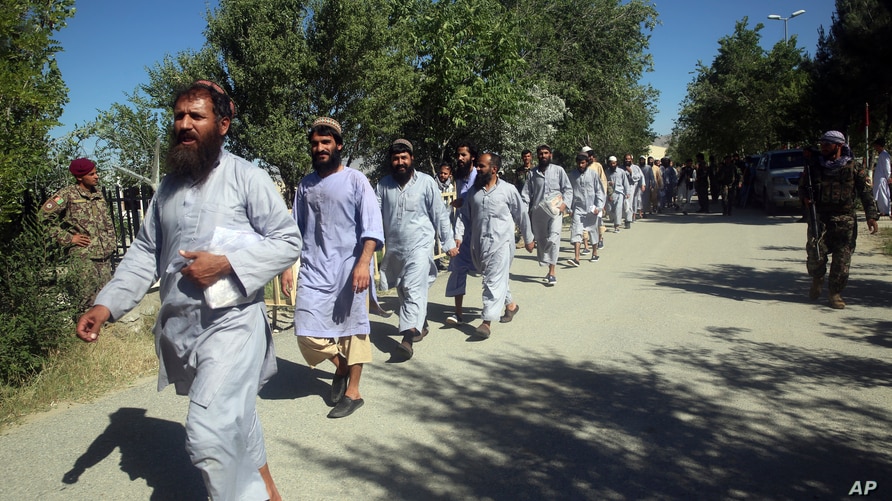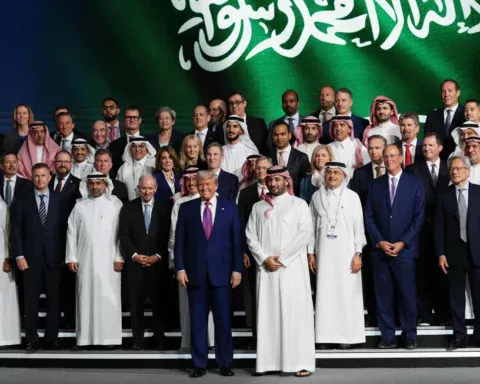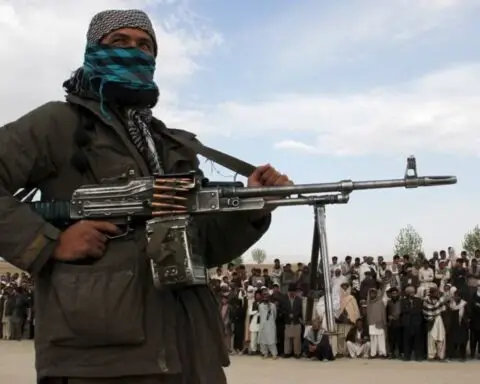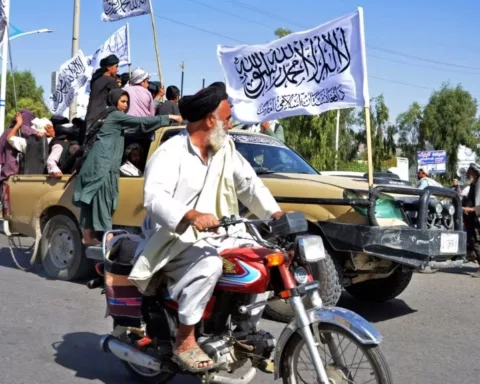ISLAMABAD – Afghanistan’s national security adviser, Hamdullah Mohib, made the announcement Sunday, alleging the men in question had returned to the battlefield to plot deadly attacks against government forces and civilians.
Under the February 2020 U.S.-Taliban deal, the government had released more than 5,000 insurgent prisoners in exchange for 1,000 security personnel.
The swap led to the opening of much-sought peace negotiations between the Taliban and representatives of Afghan President Ashraf Ghani’s government.
Mohib told reporters in Kabul that the prisoners’ release did not contribute to peace efforts, reiterating that his government would not free more Taliban.
“We have rearrested 600 of the freed individuals because they were fighting alongside the Taliban despite pledges that they would not rejoin the battlefield,” the Afghan adviser said.
Mohib added that intelligence information suggested other freed Taliban prisoners were also involved in making car bombs and directing deadly attacks at Afghan security forces as well as civilians.
He accused the Taliban of failing to live up to its commitments to reduce violence and work toward a nationwide cease-fire. Instead, Mohib said, the insurgents have escalated the violence and staged targeted killings of Afghan officials, journalists and activists.
“We see that none of the conditions that the Taliban agreed to in the U.S.-Taliban agreement have been fulfilled. We want those conditions to be implemented,” he said.
Taliban spokesman Zabihullah Mujahid rejected allegations that freed insurgent fighters had returned to the battlefield or 600 of them have been rearrested by Afghan authorities.
Mujahid told VOA, however, that Kabul has allegedly “killed or rearrested up to 40” freed Taliban during raids on their homes or on hospitals where they were undergoing medical treatment after being released from jails.
The Taliban has also repeatedly accused Afghan forces of storming homes of the freed prisoners and killing or rearresting them to spoil the U.S.-initiated peace process.
The agreement requires all remaining U.S. and NATO troops to stage a “conditions-based” complete withdrawal from Afghanistan by May 2021. Former President Donald Trump defended the pact saying it would help end what he often referred to as America’s “endless war.”
The Taliban in return pledged to negotiate a political power-sharing deal with Afghan rivals that would end years of hostilities in the country. The group has also given assurances it will stop al-Qaida and other international terrorist groups from using Afghan soil for attacks against the United States and its allies.
The agreement has reduced the number of American troops in the country from more than 12,000 a year ago to about 2,500, but, it has not eased Afghan bloodshed.
Biden to review deal
President Joe Biden’s administration, however, has vowed to review the deal. During his election campaign last year, Biden largely supported the accord but argued in favor of maintaining a small U.S. counterterrorism force in the South Asian nation.
U.S. National Security Advisor Jake Sullivan called Mohib on Friday and reaffirmed the support for ongoing peace efforts, according to a White House statement.
The statement said that Sullivan “made clear the United States’ intention to review the February 2020 U.S.-Taliban agreement, including to assess whether the Taliban was living up to its commitments to cut ties with terrorist groups, to reduce violence in Afghanistan, and to engage in meaningful negotiations with the Afghan government and other stakeholders.”
The Taliban has stressed the need for Washington to stick to the agreement, citing it is crucial for putting an end to Afghanistan’s “foreign occupation” and two decades of war.
“It is in everyone’s interest for the agreement to be implemented as it is. We reiterate our commitments outlined in the pact and demand the same from the other side,” Taliban spokesman Mohammad Naeem told VOA.
Naeem spoke from Doha, Qatar, where the Taliban maintains its political office and which is hosting the ongoing peace talks between insurgent leaders and Kabul’s peace negotiators, dubbed the intra-Afghan negotiations.






